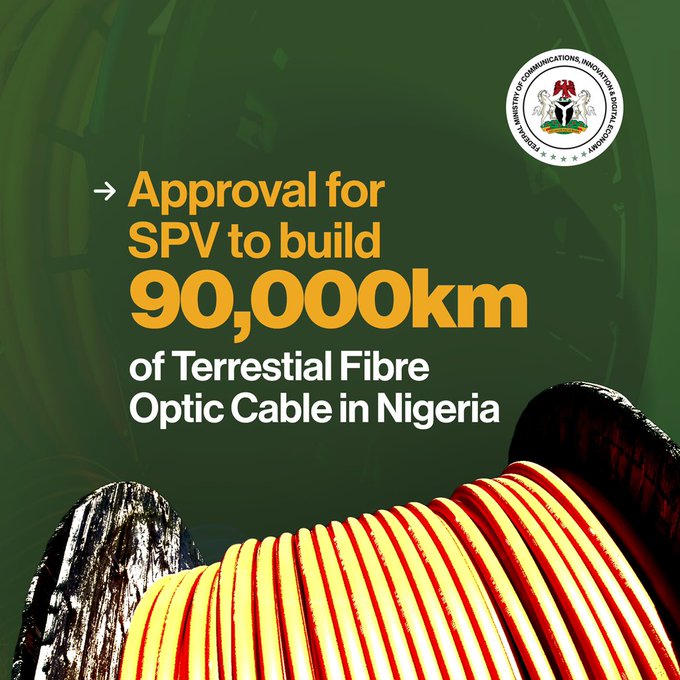The Federal Government of Nigeria has approved the establishment of a Special Purpose Vehicle (SPV) dedicated to extending Nigeria’s fibre optic network by an additional 90,000km.
The Minister of Communications, Innovation and Digital Economy, Dr. ‘Bosun Tijani, announced the landmark approval after today’s Federal Executive Council meeting in Abuja.
The minister said that the launch of the SPV is one of the 2 approvals his ministry secured. According to him, the SPV “will support the delivery of an additional 90,000km of fibre optic cable to complement our existing connectivity infrastructure and deliver a stronger national backbone for universal access to the internet across Nigeria.”
Read also: Nigeria takes steps to end fibre lines damage
Africa’s 3rd Longest Fibre Optic Backbone
The SPV will adopt a governance and operational framework inspired by successful public-private partnership models in Nigeria, such as NIBSS and NLNG. Collaborating with government and private sector stakeholders, the SPV will spearhead the expansion of Nigeria’s connectivity backbone to a minimum of 125,000km.
Upon completion, Nigeria’s fibre optic network will rank as Africa’s third most extended terrestrial backbone, trailing only Egypt and South Africa. This extended coverage will capitalise on Nigeria’s existing advantage of 8 submarine cables, driving greater utilisation of data capacity beyond the current 10% usage rate.
Benefits of the Enhanced Internet Connectivity
- The expanded network is poised to yield significant benefits:
- Increase internet penetration in Nigeria to over 70%
- Potentially reduce the cost of internet access by over 60%
- Include at least 50% of the 33 million Nigerians currently deprived of internet access
- Spur up to 1.5% GDP growth per capita, lifting GDP from $472.6 billion (2022) to $502 billion over the next four years.
- Impact on Education, Healthcare, and Social Institutions
Read also: 2Africa, the largest subsea cable lands in Nigeria
By connecting over 200,000 educational, healthcare, and social institutions across Nigeria, the initiative aims to bridge the digital divide and ensure broader access to essential services.
Nigeria’s approval of the SPV marks a significant step toward enhancing internet connectivity and fostering digital innovation nationwide. The country is poised to unlock new opportunities for economic growth and societal development in the digital age through strategic partnerships and investment in critical infrastructure.
